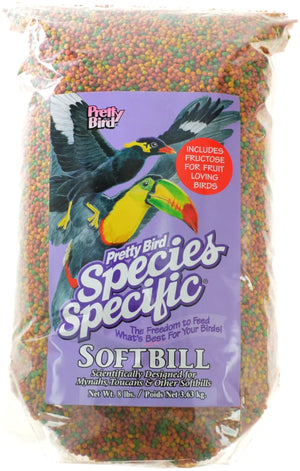High-Quality Bird Food For Happy And Healthy Pet Birds
Understanding the Importance of Bird Food for Pet Birds
Birds are among the most popular pets worldwide, captivating owners with their vibrant colors and charming personalities. However, to keep your feathered friends healthy and happy, it's crucial to provide them with the right bird food. In this article, we will explore the types of bird food available, their nutritional benefits, and essential tips for feeding pet birds.
Types of Bird Food for Pet Birds
Seed Mixes
Seed mixes are one of the most common types of pet bird food. These blends typically include a variety of seeds like millet, sunflower seeds, and safflower. Choosing high-quality seed mixes ensures that your bird receives the necessary nutrients and variety in their diet.
Pelleted Diets
Pelleted diets are specifically formulated to provide balanced nutrition for birds. They are designed to contain all the essential vitamins and minerals your pet bird needs. Opting for a pelleted diet can help prevent selective eating, a common issue with seed-based diets.
Fresh Fruits and Vegetables
Adding fresh fruits and vegetables to your pet bird's diet is vital. Foods like broccoli, spinach, berries, and apples can provide additional nutrients and hydration. It's essential to wash them thoroughly and remove any seeds or pits that could be harmful to your bird.
Nutritional Needs of Pet Birds
Each species of bird has unique nutritional requirements. It's important to research the specific dietary needs of your pet bird. Generally, a balanced diet for pet birds includes a mix of seeds, pellets, fresh produce, and occasional treats.
Vitamins and Minerals
Birds require a variety of vitamins and minerals, such as calcium, vitamin A, and fiber. A lack of these essential nutrients can lead to health issues like feather plucking and weakened bones. Utilizing fortified bird food can help meet these needs.
Hydration
Don't overlook the importance of fresh water. Always provide clean, fresh water daily. Hydration is crucial for digestion and overall health in pet birds.
How to Choose the Right Bird Food
Consult Your Veterinarian
Before making any changes to your bird's diet, it's wise to consult with an avian veterinarian. They can provide recommendations based on your bird's age, weight, and health status.
Avoid Harmful Foods
Some foods can be toxic to birds, including chocolate, caffeine, onions, and avocado. Educate yourself on bird-safe foods and avoid any harmful substances.
Conclusion
Feeding your pet bird a balanced and nutritious diet is key to keeping them healthy and thriving. By understanding the different types of bird food available and their specific dietary needs, you can ensure your feathered companion leads a long and happy life. Remember to consult with a veterinarian for personalized advice tailored to your pet bird's requirements.



















